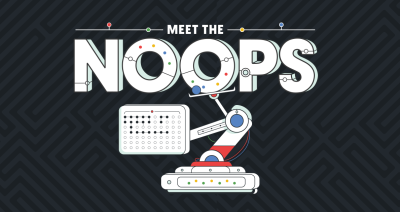
Internal repositories are now generally available for GitHub Enterprise
Now out of beta, the internal repository visibility allows an enterprise-owned repository to be read by any member of any organization that belongs to an enterprise account.

Now out of beta, the internal repository visibility allows an enterprise-owned repository to be read by any member of any organization that belongs to an enterprise account.

The 2019 theme for Game Off, our annual month-long game jam and hackathon for building games is LEAPS AND BOUNDS. Join now!

The GitHub Student Developer Pack is now offering over $100k worth of tools to students with over 25 new participating partners.

The internal repository visibility is now generally available. In addition to recent updates, we’ve added the following capabilities: Search now allows you to filter results for internal repositories using is:internal…

We take a look at the top 10 games as voted on by the community in the 8th annual JS13K competition.

Check out the Pins to Win competition winners and get inspiration to make your own winning GitHub profile.

The WebAuthn standard for security keys is making authentication as easy as possible. Now you can use security keys for second-factor authentication on GitHub with many more browsers and devices.

Check out our GitHub Internship series brought to you by our 2019 summer interns. In this post, a recipient of the 2018 National Student Teacher of the Year award shares their experience building courses for Learning Lab.

The GitHub Student Developer Pack doubles in size, offering nearly $45,000 in value to students.

Since we introduced GitHub Actions last year, the response has been phenomenal, and developers have created thousands of inspired workflows. But we’ve also heard clear feedback from almost everyone: you want CI/CD! And that’s what we’re announcing today.

Let’s have fun with code. See what our very smart—and very aimless—robots have in store for you with this week’s latest Noops.

We’ve listened to your feedback about GitHub Package Registry and we’re changing the deletion policy for packages. Read more about the change and joining the beta.

Try your hand at fun challenges with several Noops for you to interact with.

We’re sharing interviews from several open source contributors about their projects, challenges, and what a GitHub sponsorship means to them. This week, read about Siân Griffin.

To make it easier for businesses to securely embrace open source and keep up with the best technology has to offer, we’re launching several improvements to GitHub Enterprise. These new features will support businesses as they work toward their goals, encourage open collaboration, and build trust at scale.

Today, Atlassian Bitbucket, GitHub, and GitLab are issuing a joint blog post in a coordinated effort to help educate and inform users of the three platforms on secure best practices relating to the recent Git ransomware incident. Though there is no evidence Atlassian Bitbucket, GitHub, or GitLab products were compromised in any way, we believe it’s important to help the software development community better understand and collectively take steps to protect against this threat.

This year’s Special Interest Group on Computer Science Education (SIGCSE) featured two sessions that will save you countless hours of marking and administrative friction: near-total automation and CS50’s tools helping students with their programs.

Vulcanizer is a Go library for interacting with an Elasticsearch cluster. Its goal is to provide a high-level API to help with common tasks associated with operating an Elasticsearch cluster such as querying health status of the cluster, migrating data off of nodes, updating cluster settings, and more.

Join us at Craftwork to learn how to use both the GitHub API to build better developer workflows.
Build what’s next on GitHub, the place for anyone from anywhere to build anything.
Catch up on the GitHub podcast, a show dedicated to the topics, trends, stories and culture in and around the open source developer community on GitHub.